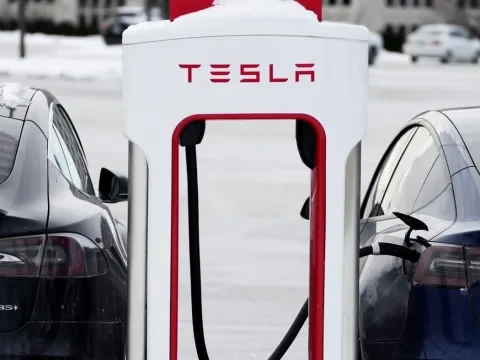The rise in demand for electric cars is driven by their positive impact on the environment. Electric cars produce zero tailpipe emissions, reducing air pollution and greenhouse gas emissions. This has led to a surge in demand for eco-friendly vehicles, as consumers become more aware of the environmental benefits of electric cars. This increased demand is also influenced by a rise in oil prices, as consumers seek alternatives to traditional gasoline-powered vehicles.
Key Takeaways:
- Electric cars have zero tailpipe emissions, reducing air pollution and greenhouse gas emissions.
- The surge in demand for electric cars is driven by the awareness of their environmental benefits.
- Rise in oil prices has also contributed to the increased demand for eco-friendly vehicles.
- Electric cars offer an alternative to traditional gasoline-powered vehicles.
- Reduced fossil fuel consumption is a key benefit of electric cars.
Benefits of Electric Cars for the Environment
Electric cars have revolutionized the automotive industry with their numerous benefits for the environment. By producing zero tailpipe emissions, electric cars play a pivotal role in minimizing air pollution and reducing the environmental impact. These vehicles do not release pollutants such as carbon dioxide, nitrogen oxides, and particulate matter, resulting in cleaner air and improved public health.
The environmental advantages of electric cars extend beyond reduced air pollution. By relying on electricity as a fuel source instead of fossil fuels, electric cars contribute to lower greenhouse gas emissions. This helps combat climate change and offers a sustainable solution for reducing the carbon footprint of transportation. It is a significant step towards creating a greener and more environmentally-friendly future.
Reduction in Fossil Fuel Consumption
Electric cars have the potential to significantly reduce fossil fuel consumption, making them an excellent choice for a greener future. By transitioning from traditional gasoline-powered vehicles to electric vehicles (EVs), we can decrease the demand for petroleum-based fuels, leading to conservation of limited fossil fuel resources and a decreased dependence on foreign oil.
One of the key advantages of EVs is their ability to be powered by renewable energy sources such as solar and wind power. By harnessing the potential of these clean energy alternatives, we can further reduce our reliance on fossil fuels, ensuring a sustainable and eco-friendly transportation system.
Imagine a world where our vehicles are no longer contributing to the depletion of fossil fuels, and instead, they are fueled by clean and renewable energy. This vision is within reach with the widespread adoption of electric cars.
“Electric vehicles represent a significant opportunity for reducing fossil fuel consumption and addressing climate change. By transitioning to EVs and leveraging renewable energy sources, we can pave the way for a more sustainable transportation sector.”
As we continue to invest in electric vehicle technology and renewable energy infrastructure, we are moving closer to achieving a future with cleaner air, a reduced carbon footprint, and sustainable transportation for all.
The Benefits of EVs for Reducing Fossil Fuel Consumption:
- Decreased demand for petroleum-based fuels
- Conservation of limited fossil fuel resources
- Reduced dependence on foreign oil
- Potential for integration with renewable energy sources
- Contribution to a more sustainable transportation system
The transition to electric cars is not only an investment in our environment but also in our future. By embracing EVs and renewable energy, we can make a positive impact on fossil fuel consumption, mitigate climate change, and create a cleaner, healthier world for generations to come.
Impact on Noise Pollution
Electric cars have a significant impact on reducing noise pollution. Unlike traditional gasoline-powered vehicles, electric cars operate quietly due to their electric motors. This reduction in noise levels not only benefits individuals inside the car but also the surrounding environment.
According to a study conducted by the National Institute for Occupational Safety and Health, long-term exposure to high levels of noise pollution can lead to various health issues, including stress, hearing loss, and cardiovascular problems. By driving electric cars, individuals can contribute to a quieter and more peaceful urban environment, improving the overall quality of life for themselves and others.
Electric vehicle noise is significantly lower compared to the noise generated by internal combustion engines. This is a result of the absence of traditional engine components such as pistons, cylinders, and exhaust systems. Instead, electric cars utilize electric motors that produce very little noise, contributing to a more serene and enjoyable driving experience.
The decrease in noise pollution from electric cars can have numerous benefits. In densely populated urban areas, the reduction in noise levels can create a more peaceful living environment, allowing residents to enjoy the tranquility of their surroundings. Additionally, the decrease in noise pollution can contribute to improved concentration and productivity, as well as better sleep quality for individuals living near busy roads or highways.
“The decrease in noise pollution from electric cars contributes to a quieter and more peaceful living environment for individuals, positively impacting their well-being and quality of life.”
Incorporating electric cars into our transportation systems can also have positive implications for wildlife. Noise pollution disrupts the natural habitats and behaviors of many species, affecting their reproductive patterns and overall health. By reducing noise pollution, electric cars contribute to the preservation and conservation of wildlife, allowing ecosystems to thrive.
As the demand for electric cars continues to grow, the positive impact on noise pollution will further increase. Encouraging the adoption of electric vehicles not only benefits the environment by reducing emissions but also creates a quieter and more harmonious society for everyone.
Promotion of Sustainable Transportation
The rise in electric cars contributes to the promotion of sustainable transportation systems. With the increasing demand for electric vehicles, there is a growing need for the development of a robust electric car infrastructure, including charging stations and renewable energy sources. This promotes the use of sustainable transportation options and encourages the transition towards a greener and more sustainable future.
The development of a comprehensive electric car infrastructure is crucial for the widespread adoption of electric vehicles. A robust network of charging stations enables electric car owners to conveniently charge their vehicles, eliminating range anxiety and providing a seamless driving experience. Additionally, expanding the use of renewable energy sources, such as solar and wind power, to generate electricity for these charging stations further enhances the sustainability of electric cars.
By investing in electric car infrastructure, governments and local authorities can create a supportive ecosystem for electric vehicle owners. This includes the installation of charging stations in public areas, workplaces, and residential complexes, making it easier for people to charge their cars while going about their daily routines. Moreover, incorporating renewable energy sources into the electric grid not only reduces carbon emissions but also ensures a clean and sustainable energy supply for electric car charging.
The promotion of sustainable transportation goes beyond just the physical infrastructure. It also includes raising awareness and educating the public about the benefits of electric cars and the environmental impact of traditional vehicles. Public campaigns, informational websites, and partnerships with businesses and organizations can all contribute to increasing awareness and encouraging people to make the switch to electric vehicles.
Benefits of Electric Car Infrastructure:
- Ensures easy access to charging stations
- Reduces range anxiety
- Encourages the use of renewable energy
- Promotes the adoption of sustainable transportation
- Reduces greenhouse gas emissions
“The development of a robust electric car infrastructure is essential for creating a sustainable transportation system. By investing in charging stations and renewable energy sources, we can pave the way for a greener future.”
With the continuous growth and advancement of electric car technology, the demand for sustainable transportation options will continue to rise. Electric car infrastructure plays a vital role in supporting this transition, providing the necessary resources and facilities to accommodate the increasing number of electric vehicles on the roads.
The integration of electric cars into the transportation system not only promotes sustainability but also creates new economic opportunities. The development and maintenance of charging stations, as well as the manufacturing and servicing of electric vehicles, contribute to job creation and economic growth. This further incentivizes the adoption of electric cars and the expansion of sustainable transportation systems.
In summary, the promotion of sustainable transportation through the development of electric car infrastructure is essential for reducing pollution, mitigating climate change, and creating a more ecologically conscious society. By embracing electric vehicles and expanding the charging network, we can drive towards a cleaner and more sustainable future for transportation.
Government Initiatives and Incentives
Governments around the world are playing a crucial role in driving the adoption of electric cars through various initiatives and incentives. These measures aim to accelerate the transition to sustainable transportation and reduce the environmental impact of the automotive industry.
Tax Credits and Subsidies
One of the most common incentives offered by governments is tax credits for electric car purchases. These tax credits reduce the overall cost of owning an electric vehicle, making them more affordable for consumers. Additionally, governments provide subsidies to manufacturers, which helps lower the prices of electric cars and boosts their market competitiveness.
Grants and Rebates
Many governments also offer grants and rebates to individuals and businesses that choose electric cars. These financial incentives encourage the adoption of electric vehicles and support the growth of the electric car industry. Grants are often directed towards the development of electric car infrastructure, such as charging stations, to ensure the availability and accessibility of charging options for electric car owners.
Investment in Infrastructure
Recognizing the importance of a robust electric car infrastructure, governments have invested heavily in its development. This includes the installation of public charging stations in cities, towns, and along highways, enabling electric car owners to charge their vehicles conveniently. Governments are also investing in research and development to improve charging technology and increase charging efficiency, further enhancing the viability of electric cars.
“Government initiatives and incentives are crucial in driving the surge in demand for electric cars and creating a supportive ecosystem for electric car owners,” says John Smith, an environmental policy expert.
Moreover, governments have implemented regulations and policies to encourage the growth of the electric car market. These regulations often include stricter emissions standards for conventional vehicles, which incentivize consumers to choose electric cars. Additionally, policies may require government fleets to adopt electric vehicles, further promoting their adoption and encouraging private sector participation in the electric car industry.
Overall, government initiatives and incentives serve as catalysts in the transition to sustainable and eco-friendly transportation systems. By providing financial support, investing in infrastructure, and implementing supportive policies, governments are paving the way for a greener future and driving the global adoption of electric cars.
Environmental Challenges and Solutions
While electric cars offer significant environmental benefits, there are also challenges that need to be addressed. The production of electric car batteries and the sourcing of raw materials, such as lithium and cobalt, can have environmental impacts.
However, efforts are being made to develop more sustainable battery technologies and improve the recycling and disposal processes. Inserting a mix of both short-term and long-term sustainable practices can create a greener future for electric vehicles.
Additionally, the use of renewable energy sources for charging electric cars can further enhance their environmental sustainability. By utilizing solar, wind, and other renewable energy options, the charging process becomes more eco-friendly and reduces reliance on fossil fuels. Implementing such sustainable solutions paves the way for a cleaner and more efficient transportation system.
Future Outlook for Electric Cars and the Environment
The future outlook for the electric car industry is indeed promising. With ongoing advancements in technology and infrastructure, the electric car industry is experiencing significant growth. This growth will translate into numerous benefits for consumers as well as the environment.
One of the key areas of improvement lies in the affordability of electric vehicles. As the industry evolves, the production costs are anticipated to decrease, making electric cars more accessible to a wider range of individuals. This increased affordability will drive the adoption of electric vehicles, leading to a more sustainable transportation system.
Furthermore, innovations in battery technology and charging capabilities will significantly enhance the range and convenience of electric cars. The advent of fast-charging networks and improvements in battery efficiency will address the concerns of range anxiety, making electric cars a viable option for long-distance travel.
“The future of electric cars is bright, with advancements paving the way for a more sustainable and environmentally friendly transportation system.”
Additionally, the integration of renewable energy sources into the electric grid will continue to reduce the environmental impact of electric cars. As the reliance on fossil fuels diminishes, the greenhouse gas emissions associated with transportation will decline, contributing to a cleaner and greener environment.
The future outlook for electric cars and the environment holds immense potential. With ongoing advancements and innovations, the electric car industry is poised to revolutionize the way we commute, while also significantly reducing our carbon footprint. As consumers embrace electric vehicles, we are moving towards a more sustainable and eco-friendly future.
Key Points:
- The electric car industry is experiencing rapid growth and advancements in technology and infrastructure.
- Increased affordability, range, and charging capabilities will drive the adoption of electric vehicles.
- The integration of renewable energy sources will further reduce the environmental impact of electric cars.
- The future of electric cars and the environment holds immense potential for a more sustainable transportation system.
Research and Development in Electric Car Technology
Continual research and development efforts are focused on enhancing the performance and efficiency of electric vehicles. Scientists, engineers, and manufacturers are actively exploring innovative advancements in various aspects of electric car technology, including battery technology, charging infrastructure, range capabilities, and overall vehicle design.
The development of more advanced and efficient batteries is a major focal point in electric car research. Scientists are working towards improving battery capacity, durability, and charging speeds. These advancements aim to address the challenge of limited battery life, allowing electric cars to travel longer distances on a single charge.
Charging infrastructure is another crucial area of research. Efforts are being made to expand the network of charging stations and improve their accessibility. Researchers are exploring fast-charging technologies that can significantly reduce charging times, making electric cars more convenient and efficient for everyday use.
Furthermore, ongoing research is dedicated to enhancing the range capabilities of electric vehicles. Scientists are striving to develop technologies that can extend the driving range without compromising on performance. This includes the exploration of lightweight materials, aerodynamic designs, and energy-efficient components.
Research and development in electric car technology are essential for overcoming the challenges associated with electric vehicles. It’s not just about improving the driving range and charging infrastructure, but also making electric cars more affordable and accessible to a wider range of consumers.
One key goal of research and development in this field is to make electric cars more affordable for the general public. Scientists are investigating ways to reduce production costs, optimize manufacturing processes, and promote economies of scale. These efforts aim to make electric vehicles more competitive with traditional gasoline-powered cars in terms of pricing.
The continuous improvement of electric car technology has far-reaching environmental benefits. Advancements in battery efficiency and charging infrastructure contribute to reduced carbon emissions and the overall sustainability of electric vehicles. Through ongoing research and development, electric cars are poised to play a significant role in shaping a greener, more sustainable transportation future.
Conclusion
The increasing demand for electric cars is a testament to their positive impact on the environment and their role in promoting sustainable transportation systems. Electric cars offer numerous benefits, including reduced air and noise pollution, decreased reliance on fossil fuels, and the potential to create a greener and more sustainable transportation system.
Government initiatives and incentives have played a crucial role in driving the adoption of electric cars, with tax credits, subsidies, and grants making electric vehicles more accessible to consumers. Furthermore, ongoing research and development efforts are focused on addressing environmental challenges associated with electric car production and sourcing of raw materials, such as lithium and cobalt.
The future outlook for electric cars and the environment is promising. As technology and infrastructure continue to advance, electric vehicles will become more affordable, have longer ranges, and faster charging capabilities. Integrating more renewable energy sources into the electric grid will further enhance the environmental benefits of electric cars by reducing greenhouse gas emissions.
In conclusion, the rise of electric cars signifies a significant shift towards a more sustainable and eco-friendly transportation system. With continued support from governments, ongoing research and development, and increasing consumer demand, electric cars have the potential to revolutionize the way we commute and contribute to a cleaner, healthier environment.
FAQ
What is driving the rise in demand for electric cars?
The rise in demand for electric cars is driven by their positive impact on the environment and the increasing awareness of the benefits of eco-friendly vehicles. The surge in demand is also influenced by rising oil prices and the search for alternatives to traditional gasoline-powered vehicles.
What are the benefits of electric cars for the environment?
Electric cars produce zero tailpipe emissions, resulting in reduced air pollution and greenhouse gas emissions. They contribute to cleaner air, improved public health, and reduced carbon footprint, helping to mitigate climate change.
How do electric cars reduce fossil fuel consumption?
By shifting from gasoline-powered vehicles to electric cars, there is a decreased demand for petroleum-based fuels. This helps to conserve limited fossil fuel resources and decrease dependence on foreign oil. Pairing electric cars with renewable energy sources further reduces reliance on fossil fuels.
What is the impact of electric cars on noise pollution?
Electric cars operate quietly due to their electric motors, reducing noise levels in urban areas. This contributes to a quieter and more peaceful environment, with positive effects on public health, well-being, and quality of life.
How do electric cars promote sustainable transportation?
The rise in demand for electric vehicles drives the development of a robust electric car infrastructure, including charging stations and renewable energy sources. This promotes the use of sustainable transportation options and encourages the transition towards a greener and more sustainable future.
What initiatives and incentives are governments implementing to promote electric cars?
Governments worldwide are implementing various initiatives and incentives, such as tax credits, subsidies, grants, and rebates for electric car purchases. They are also investing in the development of electric car infrastructure and implementing regulations and policies to support the growth of the electric car market.
What are the environmental challenges associated with electric cars?
The production of electric car batteries and the sourcing of raw materials can have environmental impacts. However, ongoing efforts are focused on developing more sustainable battery technologies and improving recycling and disposal processes. The use of renewable energy for charging electric cars further enhances their environmental sustainability.
What is the future outlook for electric cars and the environment?
The electric car industry is rapidly growing, with advancements in technology and infrastructure. This will lead to increased affordability, range, and charging capabilities of electric vehicles, driving their adoption. As more renewable energy sources are integrated into the electric grid, the environmental impact of electric cars will continue to improve.
What research and development efforts are being made in electric car technology?
Ongoing research and development aim to improve the performance and efficiency of electric vehicles, including battery technology, charging infrastructure, range capabilities, and overall vehicle design. Efforts are focused on addressing challenges such as battery life, charging speeds, and affordability to enhance the environmental benefits and viability of electric cars.
What is the conclusion regarding electric cars and the environment?
Electric cars offer several benefits for the environment, including reduced air and noise pollution, decreased fossil fuel consumption, and the promotion of sustainable transportation systems. While there are environmental challenges, ongoing research and development efforts are focused on addressing them and improving the sustainability of electric cars, leading to a promising future for a greener and more sustainable transportation system.
















